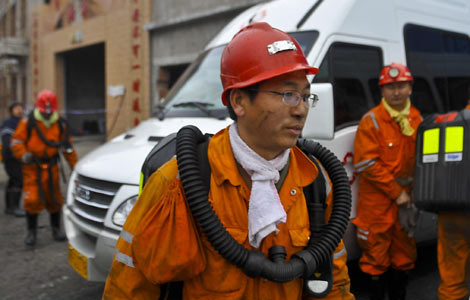Eco-science centers to bind ties
Updated: 2013-12-17 00:02
By Wang Qian (China Daily)
|
||||||||
China is expanding its eco-environment technology presence in Central Asia with two research centers to be established next year.
The two centers will be created in the Xinjiang Uygur autonomous region to facilitate cooperation with scientists from Central Asia, according to Chen Xi, director of the Xinjiang Institute of Ecology and Geography under the Chinese Academy of Sciences. He spoke by telephone on Monday.
The two centers are an ecology and environment research center and a Central Asia science and technology center, Chen said.
The ecology and environment research center will have three satellite branches — in Kyrgyzstan, Kazakhstan and Tajikistan. All are currently under construction, with completion expected in 2014.
Chen said the science and technology center will become an international bridge of cooperation and communication in scientific fields involving ecology for China and Central Asian countries.
The center will play an important role in building a Silk Road economic belt, a vision articulated by President Xi Jinping during the Shanghai Cooperation Organization summit in September for linking businesses throughout the region.
Central Asia shares a border of more than 3,000 kilometers with northwestern China. Historically, the Silk Road passed through the region, connecting China with Central Asia, Europe and India.
China has placed a high priority on the study of climate change in cooperation with Central Asia. The Ministry of Science and Technology launched a program there in 2010 to focus on issues of environmental protection and management of natural resources in the context of global climate change.
The construction of the centers is part of the second phase of the program, which is likely to last about five years, Chen said.
The program is hosted by the Xinjiang Institute of Ecology and Geography in conjunction with 18 Chinese scientific research organizations and another 26 from Central Asia. Investment in the program’s first phase reached $10 million, Chen said.
While China is boosting trade and cooperation with Central Asia, Yang Cheng, deputy director of the Center for Russian Studies at East China Normal University, said cooperation in culture, biology and environmental protection should also be strengthened because of Central Asia’s key role in helping China extend its global influence.

 Snow hits SW China's Yunnan province
Snow hits SW China's Yunnan province
 Moon rover, lander photograph each other
Moon rover, lander photograph each other
 With a hole in its heart, South Africa buries Mandela
With a hole in its heart, South Africa buries Mandela
 After the storm
After the storm
 Guangzhou beats Al-Ahly 2-0 at Club World Cup
Guangzhou beats Al-Ahly 2-0 at Club World Cup
 Two students wounded in US school shooting
Two students wounded in US school shooting
 21 died in Xinjiang coal mine explosion
21 died in Xinjiang coal mine explosion
 Mandela's body transferred to Qunu village
Mandela's body transferred to Qunu village
Most Viewed
Editor's Picks

|

|

|

|

|

|
Today's Top News
China safeguarded national interests in 2013
14 terrorists killed in Xinjiang
 Chinese law firm expands in US
Chinese law firm expands in US
Complacency hinders US energy-saving strategies
China plans its Chang'e-5 lunar probe
Dialogue urged after naval incident
Chang'e-3 mission 'complete success'
Cave art's wide influence explored
US Weekly

|

|







